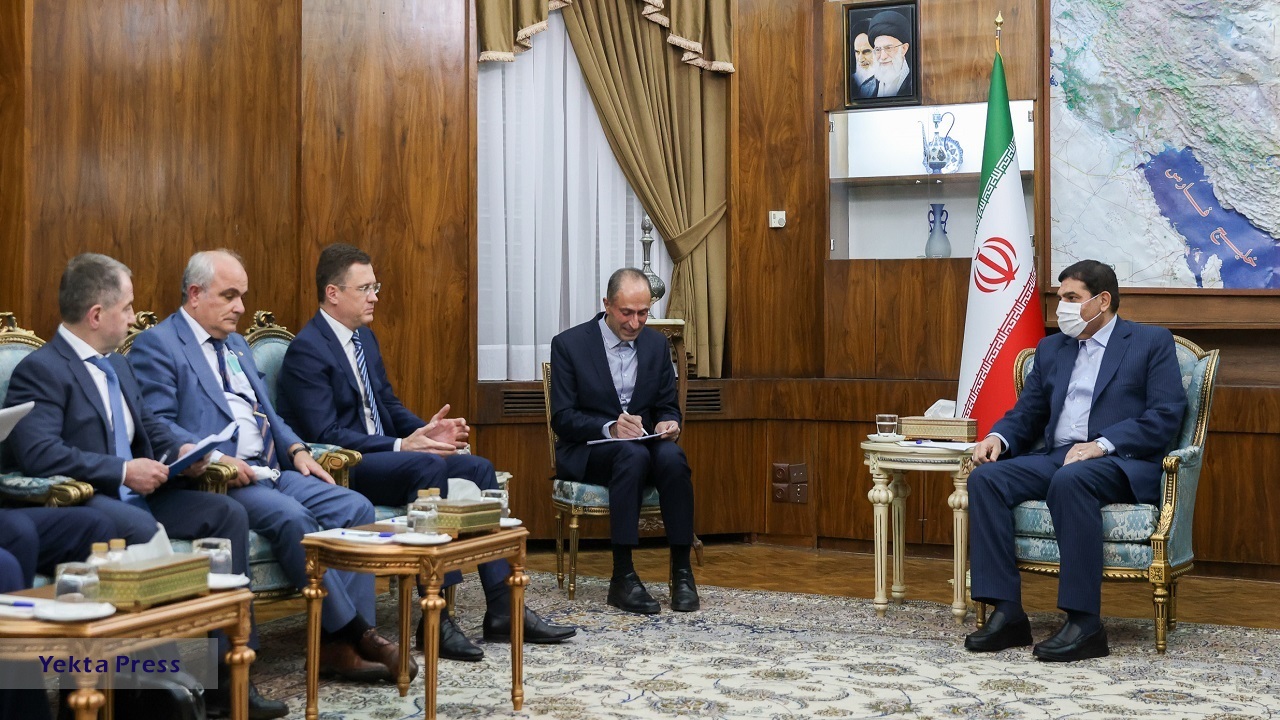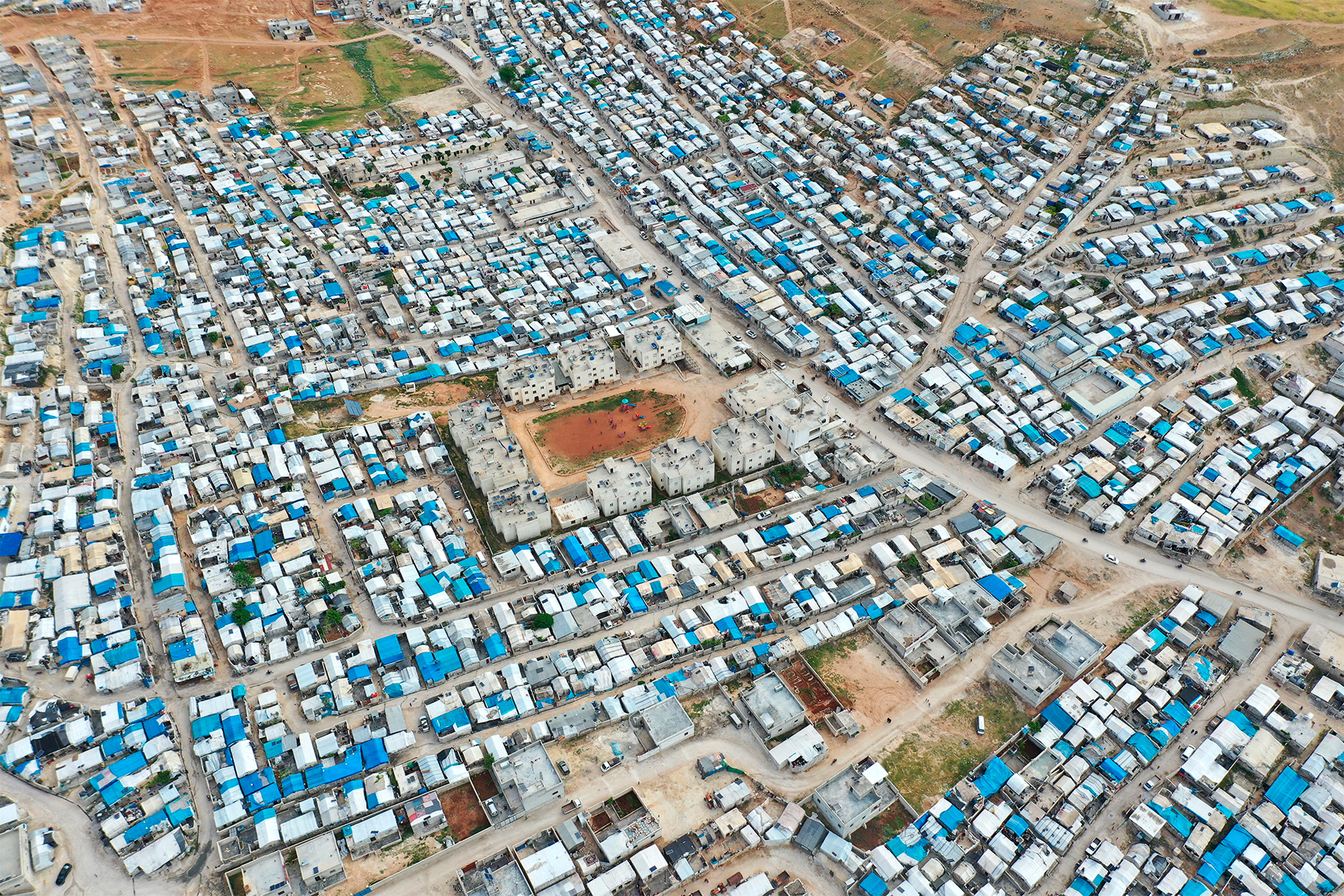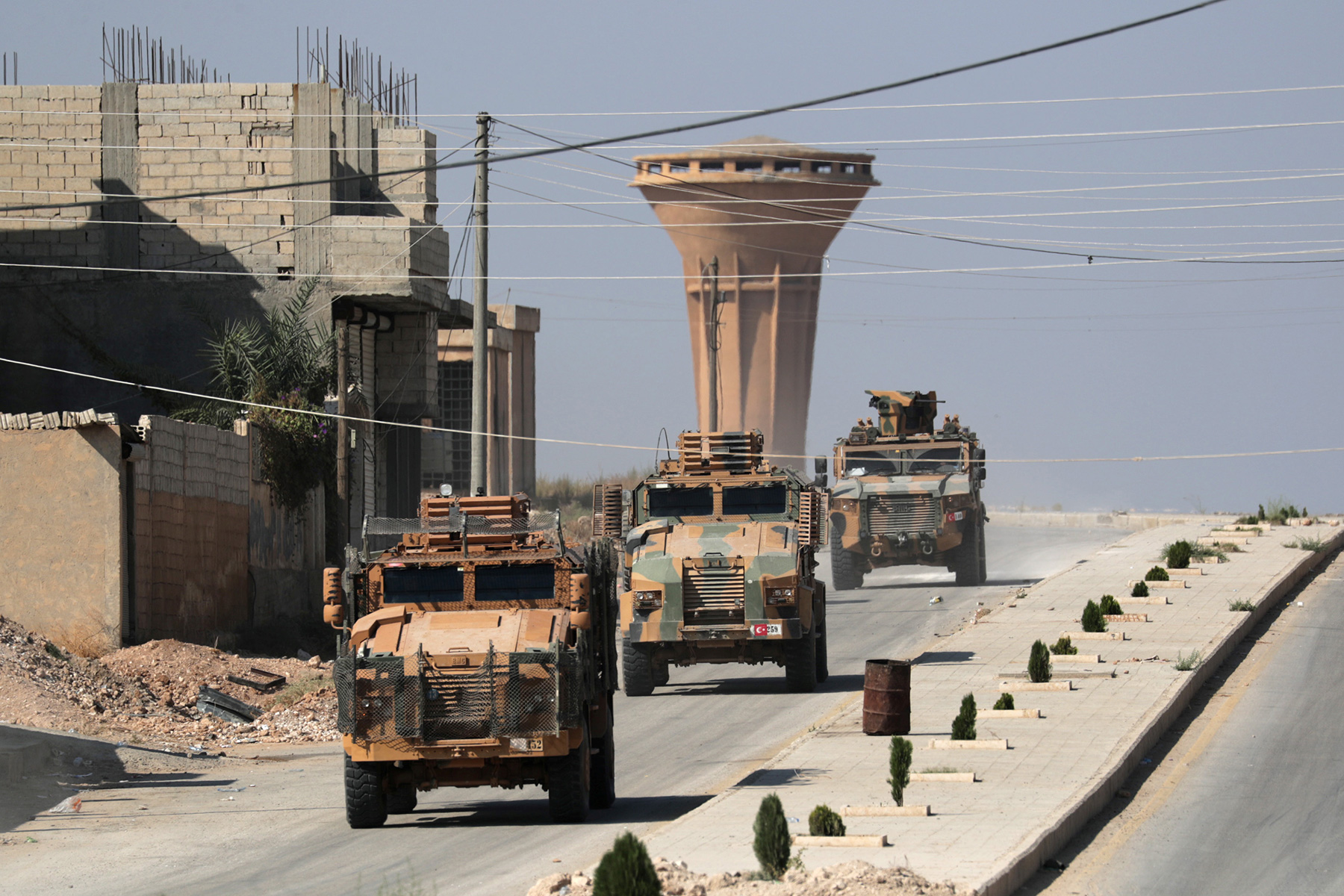Russia’s ongoing special military operation in Ukraine has sparked broad and intensive debates about future modalities of the relations between Russia and Iran in Syria. Western and Israeli analysts predict an essential growth of the political, military, and economic presence of Tehran due to Moscow’s attention switching from Syria to Ukraine. This, in turn, may re-shift the whole dynamics of the Russian-Iranian relations on the Syrian dossier.
On the contrary, despite reports of minor pullouts from Syria along with international media leaks about transfers of military sites to Iran and Hizbollah, Russian representatives consistently reject such forecasts, referring to a “routine rotation” but “absolutely not a withdrawal” of the Russian troops. Those speculations have intensified on the eve of the next tripartite meeting of the Iranian, Russian, and Turkish leaders on Syria scheduled for July 19, 2022, in the Iranian capital.
There are also grave concerns among experts that the Ukrainian crisis might create a political-military vacuum in Syria doomed to be filled by the Iranians. Otherwise, any unilateral Russian withdrawal could have had harrowing consequences similar to America’s pullout from Iraq. This could provoke an Iraqi scenario with the nightmares of a sectarian war, terrorist militias, massive killings, and further outflows of refugees and IDPs placing Syria on the brink of a humanitarian catastrophe.
Under such risky circumstances, at least two main options emerge. Either Russia will no longer constrain the expansion of the Iranian military influence and Tehran’s major role in Syria’s post-conflict economic reconstruction as long as Moscow’s strategic interests in maintaining control over the Mediterranean ports of Latakia and Tartus are observed, or Russia may try to coordinate more closely with Turkey in the north and Israel in the south to contain the Iranian expansion.
Russia’s relationship with Iran demonstrates Moscow’s ability to compartmentalize its foreign policy by concentrating on areas of cooperation to mitigate tensions elsewhere in the relationship. This strategy adopted by Moscow is similar to the “co-opetitative” relationship between Russia and Turkey. Therefore, it is misguided to overstate disagreements between Russia and Iran in Syria as indications of a deteriorating partnership. Competition in this particular case doesn’t mean a clash or the start of hostilities.
Russia’s ongoing special military operation in Ukraine has sparked broad and intensive debates about future modalities of the relations between Russia and Iran in Syria. Western and Israeli analysts predict an essential growth of the political, military, and economic presence of Tehran due to Moscow’s attention switching from Syria to Ukraine. This, in turn, may re-shift the whole dynamics of the Russian-Iranian relations on the Syrian dossier.
On the contrary, despite reports of minor pullouts from Syria along with international media leaks about transfers of military sites to Iran and Hizbollah, Russian representatives consistently reject such forecasts, referring to a “routine rotation” but “absolutely not a withdrawal” of the Russian troops. Those speculations have intensified on the eve of the next tripartite meeting of the Iranian, Russian, and Turkish leaders on Syria scheduled for July 19, 2022, in the Iranian capital.
There are also grave concerns among experts that the Ukrainian crisis might create a political-military vacuum in Syria doomed to be filled by the Iranians. Otherwise, any unilateral Russian withdrawal could have had harrowing consequences similar to America’s pullout from Iraq. This could provoke an Iraqi scenario with the nightmares of a sectarian war, terrorist militias, massive killings, and further outflows of refugees and IDPs placing Syria on the brink of a humanitarian catastrophe.
Under such risky circumstances, at least two main options emerge. Either Russia will no longer constrain the expansion of the Iranian military influence and Tehran’s major role in Syria’s post-conflict economic reconstruction as long as Moscow’s strategic interests in maintaining control over the Mediterranean ports of Latakia and Tartus are observed, or Russia may try to coordinate more closely with Turkey in the north and Israel in the south to contain the Iranian expansion.
In the past, Russia’s leading role has been limiting the scope of Iran’s activities in Syria altogether with the “balanced” partnership with Israel and the “co-opetitative” relation with Turkey, thus preventing a major war in Syria. The Russian intervention in Syria in September 2015 was a turning point as it provided decisive air power to the Syrian and Iranian-backed ground forces, solidifying the state’s hold on power and expanding its territorial control through concomitant diplomatic efforts.
Throughout the Syrian war, regularized military and political exchanges have served to strengthen the Russia-Iran relationship. With the changing military dynamics in Syria, Russia, Iran, and Turkey spearheaded the Astana Process as a parallel track to the UN mediation. Moscow’s diplomatic and military gains on the ground have also embroiled them in a broader regional geopolitical competition between the United States, Russia, Turkey, Israel, and Iran.
However, since the very beginning, the Russian-Iranian partnership in Syria has faced both achievements and challenges amidst Iran’s steps mostly driven by ideology as compared to Russia’s actions motivated by pragmatism, even though both Moscow and Tehran endorsed President Bashar al-Assad in his fight against the Islamists. During the course of the war, Moscow did its best to avoid a direct confrontation between Israel and Iran in Syria, as Israeli jets bombed Iranian military cities in Syria. Based on agreements with Washington and Israel, Moscow made attempts to prevent Tehran from reaching the Israeli border near Daraa and Al-Quneitra and tried to limit Iranian expansion in Eastern Syria near the borders with Iraq between the cities of Al-Mayadin and Abu Kamal, where the Russian side was concerned of the risk of clashes between pro-Iran militias and U.S. military stationed on the other side of the Euphrates. Moreover, while Iran was having tense relations with the monarchies of the Arab Gulf, Russia managed to establish closer ties with them, pushing for Syria’s reintegration into the Arab world. Thus, the Qatar-Russia-Turkey diplomatic “triangle” aimed at generating assistance for Syria’s peace process and post-conflict reconstruction was inaugurated during a working visit paid by Russian Foreign Minister Sergei Lavrov to Doha in March 2021.
For good reason, experts pay attention to different, if not opposite, approaches of Russia and Iran toward restoring sovereignty of the Syrian state. While Moscow has always been insisting on ensuring the state’s integrity and workable apparatus with exclusive prerogatives for violence and arms control under Bashar al-Assad’s presidency, people close to Iran’s Supreme Leader advocate a parallel system of security run by non-government actors (the Islamic Revolutionary Guards Corps and its proxies) with numerous fragmented territories under Iran’s control.
Remarkably, Moscow still has the upper hand in developing friendly contacts in the local security community sharing the goal of institutional centralization with Damascus, which serves the interests of the Syrian government. Many observers rationally linked this imperative with a deep reshuffling of Syria’s special services in July 2019 whereas the National Security Bureau and four of Syria’s intelligence directorates placed under a new leadership. Unsurprisingly, all the five individuals promoted—Mohammed Deeb Zeitoun along with Generals Ghassan Ismail, Hossam Louka, Nasser Deeb, and Nasser al-Ali—enjoyed close relations with Russia while having no—at least, public—affiliation with Iran.
It is clear that both Russia and Iran have long-term goals in Syria. Almost any Iranian project here is linked not just to the duration of the conflict but rather to the consolidation of Tehran’s potential of deterring the Israeli influence in the Eastern Mediterranean (Levant). Reports indicate that convoys of the IRGC and the Iraqi Popular Mobilization Units often enter the Syrian territory through the city of Abu Kamal heading for the eastern Deir Ezzor province and the northeastern Al-Hasakah province. Hence, Tehran wants to secure its positions in Syria, even after President al-Assad leaves or if Russia suddenly changes its policy toward Syria.
Taking into consideration all mentioned above without questioning a certain impact produced by the Ukrainian crisis on the dynamics of the Syrian conflict, a better understanding of the existing contradictory assessments mandates a complex approach. Therefore, the future of the Russia-Iran tandem in Syria should be analyzed by reviewing other important factors on global and regional levels. Among them:
-
a high degree of military escalation between Russia and the U.S. American experts have already mentioned Syria as a casus belli between the two nuclear powers;
-
detente between Tehran and Washington which depends on a compromise on the Iranian nuclear program and meeting Israel’s security concerns. On the one hand, heavy bargaining is still in place, heated by President Biden’s recent threats of force (this could be recognized as “a stick”). On the other hand, any U.S.-Iran reconciliation meaning a lift of anti-Iranian sanctions (“a carrot”) could envisage Iran’s certain reluctance in terms of boosting economic cooperation with Russia in general and in Syria in particular;
-
critical dialogue between Russia and Israel. If the latter extends its support for Kiev, Moscow will apparently become less tolerant of Israeli raids in Syria (for instance, using modern S-300 SAMs for counterattacks). At the same time, Russia could become more supportive of the Iranian and pro-Iranian forces (the IRGC, Hizbollah, and even proxy militias) across the country including Southern, Eastern, and Northeastern Syria, as well as in the northern Aleppo province;
-
all three relationships seem to stay interconnected in the foreseeable future. Specific scenarios in Syria will depend on whether Russia and the Western powers agree to put a prompt end to the Ukrainian crisis on conditions acceptable to Moscow. In such a case, Russia will most likely try to keep the status quo in its relations with both Iran and Israel. Otherwise, Russia’s strained relations with Israel could be accompanied by a broader, although still selective, coordination with Iran. For Tehran, it is bargaining with the West, especially the U.S., and not the Ukrainian crisis, which de-facto – despite hostile anti-American and anti-Israeli rhetoric – has been producing a significant impact on the “rules of behavior” in the whole area recognized by the Iranian leadership as the “Shia Crescent” zone. (Building a strategic land corridor through Iraq, Syria, and Lebanon and using the port of Lattakia for transporting weapons, militants, and goods). The same factor will influence Iran’s pragmatic approaches toward Russia.
Yet, military rapprochement between Russia and Iran is unlikely to constitute a complete convergence of their attitudes towards the political reconstruction of Syria. This is why recent speculations of Iranian experts about the current growth of Tehran’s influence limited to the political sphere as well as about Russia delegating to Iran some of the security functions in Syria during the Ukrainian crisis look quite disputable.
It is also worth mentioning that rapprochement between Moscow and Tehran, if a relevant arrangement is reached at the July 19 summit, could definitely enhance the Russian-Iranian pragmatic economic cooperation in Syria, including the realization of large-scale common projects (like constructing a railway from the Syrian coast to Iraq through the parts of Eastern Syria controlled by the Iranians). However, this will not lead to a complete disappearance of economic competition: Moscow still seeks exclusive access to Syria’s mineral resources (phosphates, oil, and gas) while the Iranians do not intend to cease efforts to ensure their own long-time economic presence as a tool serving Tehran’s strategic interests under the slogan of the anti-US and anti-Israeli “axis of resistance.” Besides, Moscow will hardly refrain from proposing the so-called Russian “security matrix” (use of the Russian military police in combination with the accumulated experiences of facilitating local reconciliations – musalahat in Arabic) as a security “umbrella” for carrying out economic projects by third countries, for instance, from the Arab Gulf (within a policy of “re-opening Syria” by Arab investors – al-infitah in Arabic). Some of those projects could contradict Iranian interests.
On the other hand, the Iranians themselves could follow Russia in conducting pragmatic and balanced diplomacy on the Arab Gulf track producing a certain impact on the Russia-Iran tandem in Syria. In an interview with Al-Jazeera, Mohsen Shariatinia, an assistant professor of international relations at Tehran’s Shahid Beheshti University, said that Iran is deploying geo-economics as means of soft power hence, to maintain its position in the fragile balance of power in the region, and to intertwine its economy with those of its surrounding environment. Besides, pro-Iranian militias and Kurdish fighters were reported to establish a joint operations room, named “North Thunderbolt” located at a Russian base in the village of Hardatnin in the northern countryside of Aleppo. It aims to coordinate and secure lines of withdrawal and supplies for the YPG troops in case of a Turkish invasion. This correlates policies of Saudi Arabia and the UAE aimed at counterbalancing Turkey’s “neo-Ottoman” expansionism in Northern Syria.
In a nutshell, diverging views of Russia and Iran related to Syria are unlikely to cause a true breakdown of their tactical partnership which could be named a “marriage of convenience” or a “competitive partnership.” According to Nicole Grajewski, an international security fellow at the Belfer Center for Science and International Affairs in the Harvard Kennedy School of Government, “just as Russia and Iran have managed to resolve tactical disagreements between local proxy forces in the military campaign through bureaucratic and military channels, Moscow and Tehran will likely delimit spheres of interests within Syria as both seek to reap the political and economic benefits of close linkage to Damascus.” Therefore, Russia’s relationship with Iran demonstrates Moscow’s ability to compartmentalize its foreign policy by concentrating on areas of cooperation to mitigate tensions elsewhere in the relationship. This strategy adopted by Moscow is similar to the “co-opetitative” relationship between Russia and Turkey. Therefore, it is misguided to overstate disagreements between Russia and Iran in Syria as indications of a deteriorating partnership. Competition in this particular case doesn’t mean a clash or the start of hostilities.








